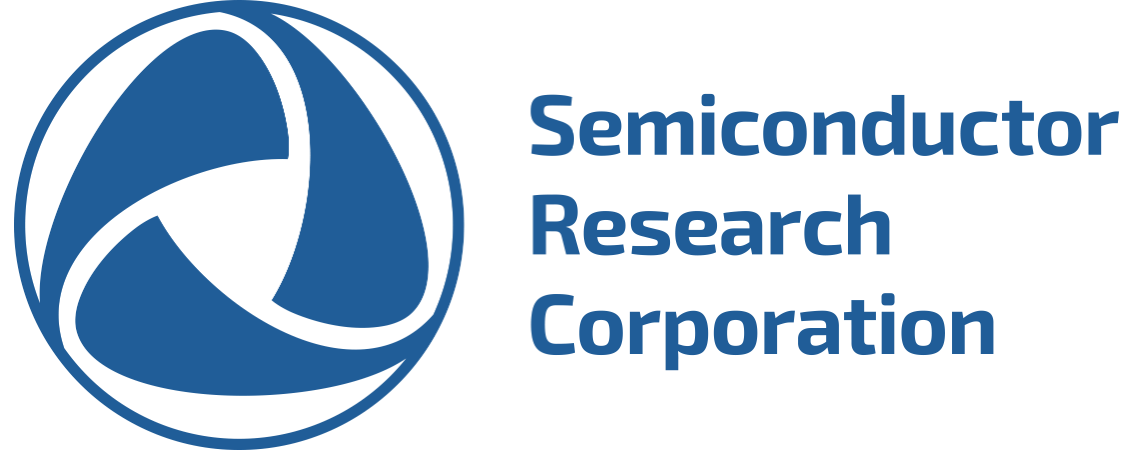Call for White Papers:
The SRC Cross-disciplinary Semiconductor Research Program (CSR)
Goal
The goal of the Cross-disciplinary Semiconductor Research (CSR) program is to foster
exploratory, multi-disciplinary, high-risk university research leading to novel
high-payoff solutions of the technology challenges faced by the semiconductor industry at
and beyond the time horizons of the International Technology Roadmap for Semiconductors
(ITRS). Successful CSR projects will offer innovative and perhaps disruptive solutions to
the cost/performance challenges of the semiconductor industry for 2010 and beyond and/or
may lead to novel applications for this industry. Proposals are solicited for novel ideas
and concepts that are beyond/outside the scope of the ITRS. These can include novel
system architecture and embedded software concepts; novel circuit/device concepts, (e.
g., memory based logic, phase based logic); physics, chemistry, characterization,
computation and assembly of nanostructures/functional materials, (e. g., thermo-electric
cooling materials, phase transition materials, nano-ferroelectrics, electro-optic
materials and magnetic semiconductors). New radical concepts on topics that are normally
considered outside the scope of SRC, such as optoelectronics, spintronics, organic and
molecular electronics, MEMs including novel switch/interconnect concepts; biological
interfaces; novel information processing schemes, such as quantum and DNA computing etc.
are also sought. Preference will be given to projects that require a true
multi-disciplinary approach (see *CSR tasks funded in 2001).
Role
The role of the CSR program is to stimulate non-traditional thinking about the issues
facing the industry. CSR is intended to complement the traditional SRC science area
research programs in Computer-Aided Design and Test, Integrated Circuits and Systems,
Nanostructures and Integration, and in Materials and Processes, and the MARCO Focus
Centers. Funding for a CSR project is provided on a non-renewable grant basis, with a
maximum funding not to exceed $40K per project.
Expectations
Participants in the CSR program are encouraged to develop a proposal for follow-on
funding for expanded programs by the SRC science areas or for funding by other agencies,
and possibly by the MARCO Focus Centers. Follow-on SRC funding will depend on the
availability of funds and strategic plan alignment.
Eligibility: University Faculty
Proposals and Schedule
The proposal for a CSR grant is limited to five pages in length and should describe the
planned research approach, possible research outcomes, and the long-term significance to
the semiconductor industry if successful. Proposals are due at the SRC no later than
close of business, August 30, 2002 and will be reviewed by the SRC Executive
Technical Advisory Board in October 2002. Notifications of the outcome of the review
process will be made by mid November 2002.
Questions regarding the intent and scope of the CSR Program are to be addressed to:
Dr. Lalita Manchanda
Telephone: (919) 941-9400
Proposal Structure (strict limit of five pages)
- Project name:
- Investigators:
- University:
- Mailing address:
- Telephone number and e-mail address:
- Problem to be addressed: Explain the rationale for the project in terms of the semiconductor industry needs. (A good resource is the 2001 International Technology Roadmap for Semiconductors, http://public.itrs.net)
- Objective: What do you plan to do?
- Novelty: Please discuss the role of cross-disciplinary research in providing a unique solution to the problem addressed.
- Approach: Strategy for addressing the problem.
- Research output: Please identify possible research products of a successful research program.
- Funding requested for study grant:
Submission Instructions
- Electronic submission of proposals is required.
- Please submit postscript, pdf, html or Word files using Arial, Courier, Times Roman or Helvetica fonts. If you plan to utilize a Macintosh to generate the proposal, please call ahead so that we can minimize submission difficulties.
- Please use fonts of 10-point size or larger.
- Send your files as e-mail attachments to
Ms. Leslie Faiers, faiers@src.org
Telephone: (919) 941-9455
Submission Deadline: August 30, 2002 @ 5:00 PM EST.
*CSR tasks funded in 2001:
- Three-Dimensional SiGe Nanostructures for Optical Interconnects
- Organic Transistors on Threads: A Building Block for Computational Fabric
- Terahertz Photonics
- Computing with Nano-Scale Devices - Looking at Alternative Models
- Electronic Control of Functional Molecular-MOSFET Interfaces
- Mott Transition Field Effect Transistors (MOTFETs) and Mott Transition RAM (MOTRAM)
- On-the-Fly Two-Level Reconfigurable VLIW Architectures for Maximum Parallelism, Testing, and Cross-Generation Code Compatibility
- Nanoparticle Devices for Many Level, Multi Material Single Crystal Systems
- Enhancement of Thermoelectric Module Cooling Performance for Microelectronics: Carrier Control by Field Effect Transistor
- Context-Aware Computing
- Nanoscale Imaging of Dopant Atom Distributions at Interfaces and in Devices using 3D Atom Probe Microscopy
- Self-Testable and Reconfigurable Nanoarchitectures Resilient to High Defect Rates
- When is Small Good? On Unusual Electronic Properties of Nanowires
- Nuclear Spin Based Memory and Logic in Quantum Hall Semiconductor Nanostructures
- Single-Dopant Semiconductor Devices


